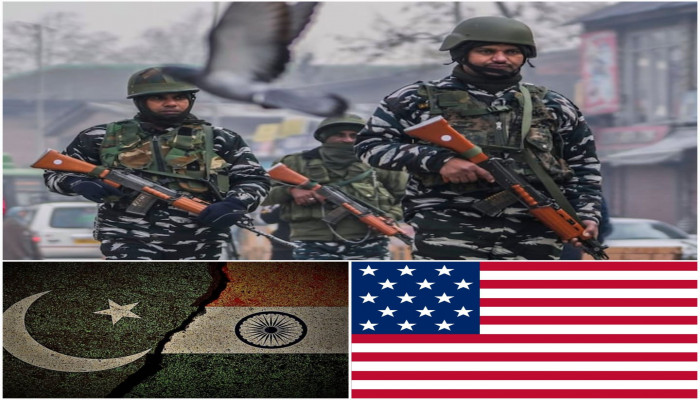US issues ‘do not travel’ alert for Kashmir; India urges citizens to exit Pakistan immediately
- In Reports
- 05:01 PM, Apr 24, 2025
- Myind Staff
Following the deadly terrorist attack in Pahalgam, Jammu and Kashmir, the United States has issued a Level 4 “Do Not Travel” warning for the area, pointing to serious security threats and the risk of more violence. The advisory comes after the April 22 incident, where militants fired on tourists in the Baisaran Valley near Pahalgam, killing at least 26 people and injuring many more. Highlighting the seriousness of the situation, the U.S. Embassy in New Delhi has urged American citizens in the area to stay alert and avoid travelling to Jammu and Kashmir. The advisory also warned people not to go within 10 kilometres of the India-Pakistan border due to the risk of armed conflict.
On Thursday, the Indian government announced the suspension of all types of visas for Pakistani citizens and instructed them to leave the country by April 27. An exception has been made for medical visas, which will remain valid for two extra days and will be cancelled on April 29.
The ministry urged Indian citizens in Pakistan to return as soon as possible.
"All Pakistani nationals currently in India must leave India before the expiry of visas as now amended. Indian nationals are strongly advised to avoid travelling to Pakistan. Those Indian nationals currently in Pakistan are also advised to return to India at the earliest," the statement read.
Following a Cabinet Committee on Security meeting chaired by Prime Minister Modi, the government announced on Wednesday that it has suspended SAARC visas for Pakistani citizens. "Pakistani nationals will not be permitted to travel to India under the SAARC visa Exemption scheme. Any SPES visas issued in the past to Pakistani nationals are deemed cancelled."
The militant group Kashmir Resistance, also known as The Resistance Front (TRF), claimed responsibility for the attack. The group is believed to be a branch of the Pakistan-based Lashkar-e-Taiba. Indian officials have connected TRF to earlier attacks and accused Pakistan of backing cross-border terrorism, an allegation Pakistan continues to deny.
Following the attack, Indian Prime Minister Narendra Modi promised to hold those responsible accountable and introduced several diplomatic steps, such as suspending the Indus Waters Treaty and reducing diplomatic ties with Pakistan. The Indian government has also stepped up regional security to stop further attacks. The international community has strongly condemned the incident. U.S. President Donald Trump expressed his condolences and backed India’s efforts against terrorism. Leaders from other countries, including Australian Prime Minister Anthony Albanese and Canadian Prime Minister Mark Carney, also condemned the violence and offered their sympathies to the victims and their families.
The attack has dealt a heavy blow to the local tourism sector, which had been steadily bouncing back in recent years. Since the incident, tourist numbers have dropped sharply, with many people cancelling their plans and local businesses suffering major financial setbacks. Investigations are still underway as authorities work to track down those responsible. The situation underscores the importance of global cooperation in tackling terrorism and the ongoing challenges of ensuring safety in the area. Travellers are being urged to stay updated on the situation and be cautious when planning trips to regions with increased security risks.







Comments